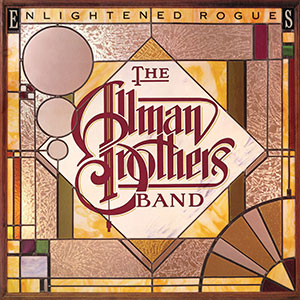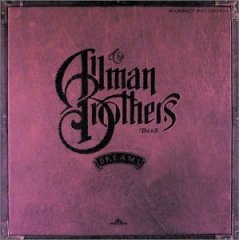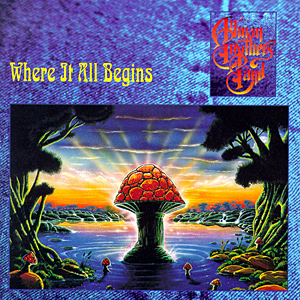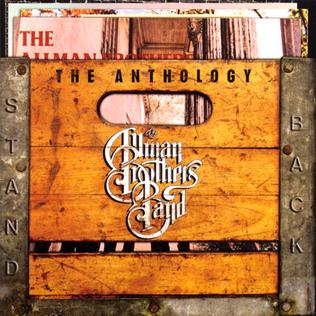
The Allman Brothers Band was an American rock band formed in Jacksonville, Florida in 1969 by brothers Duane Allman and Gregg Allman, as well as Dickey Betts, Berry Oakley (bass), Butch Trucks (drums), and Jai Johanny "Jaimoe" Johanson (drums). Subsequently, based in Macon, Georgia, they incorporated elements of blues, jazz and country music and their live shows featured jam band-style improvisation and instrumentals.

Gregory LeNoir Allman was an American musician, singer and songwriter. He was known for performing in the Allman Brothers Band. Allman grew up with an interest in rhythm and blues music, and the Allman Brothers Band fused it with rock music, jazz, and country at times. He wrote several of the band's most popular songs, including "Whipping Post", "Melissa", and "Midnight Rider". Allman also had a successful solo career, releasing seven studio albums. He was born and spent much of his childhood in Nashville, Tennessee, before relocating to Daytona Beach, Florida and then Macon, Georgia.

Forrest Richard Betts is an American guitarist, singer, songwriter, and composer best known as a founding member of the Allman Brothers Band.

The Essential Allman Brothers Band: The Epic Years is a greatest hits album by the Allman Brothers Band released in 2004. The album is put out by their former label, Epic Records, and is part of then-Sony BMG's The Essential series. The album has songs created by the band from their switch to Epic for their 1989 reformation until they left the label in 2003. What is now Sony Music Entertainment also owns the band's releases on Arista Records.

Win, Lose or Draw is the fifth studio album and sixth overall by American rock group the Allman Brothers Band. Produced by Johnny Sandlin and the band themselves, it was released on August 22, 1975 in the United States by Capricorn Records. It was the last studio album to feature bassist Lamar Williams and pianist Chuck Leavell.

Enlightened Rogues is the sixth studio album by American rock band the Allman Brothers Band. Produced by Tom Dowd, the album was released in February 1979 in the United States by Capricorn Records and PolyGram Records elsewhere. The Allman Brothers Band had broken up in 1976 following internal turmoil, amplified by escalating drug use. The band members splintered into different acts — among those Great Southern, Sea Level, and the Gregg Allman Band. Guitarist Dickey Betts approached his bandmates in 1978 with the prospects of a reunion. It is the first to feature guitarist Dan Toler and bassist David Goldflies. Living together in Sarasota, Florida, they rehearsed and wrote the material for their next album in fall 1978.

Dreams is a compilation album by the Allman Brothers Band. Packaged as a box set of four CDs or six LPs, it was released on June 20, 1989.

Seven Turns is the ninth studio album by the Allman Brothers Band, released in 1990. Their first studio album since Brothers of the Road in 1981, it was well-received, and peaked at #53. Hit singles were "Good Clean Fun" ; "Seven Turns" (#12) and "It Ain't Over Yet" (#26).
"Whipping Post" is a song by The Allman Brothers Band. Written by Gregg Allman, the five-minute studio version first appeared on their 1969 debut album The Allman Brothers Band. The song was regularly played live and was the basis for much longer and more intense performances. This was captured in the Allman Brothers' 1971 double live album At Fillmore East, where a 22-minute, 40-second rendition of the song takes up the entire final side. It was this recording that garnered "Whipping Post" spots on both the Rock and Roll Hall of Fame's 500 Songs that Shaped Rock and Roll list and Rolling Stone's list of "The 500 Greatest Songs of All Time", which wrote, "the song is best appreciated in the twenty-three-minute incarnation on At Fillmore East."
"Blue Sky" is a song by the American rock band The Allman Brothers Band from their third studio album, Eat a Peach (1972), released on Capricorn Records. The song was written and sung by guitarist Dickey Betts, who penned it about his girlfriend, Sandy "Bluesky" Wabegijig. The track is also notable as one of guitarist Duane Allman's final recorded performances with the group. The band's two guitarists, Duane Allman and Dickey Betts, alternate playing the song's lead: Allman's solo beginning 1:07 in, Betts joining in a shared melody line at 2:28, followed by Betts's solo at 2:37. The song is notably more country-inspired than many songs in the band's catalogue.

Shades of Two Worlds is the tenth studio album by the Allman Brothers Band. Among the tracks are several longer songs of varying genres: the rock song "Nobody Knows"; jazzy instrumental "Kind of Bird"; and the blues-rocker "Get On with Your Life". Dickey Betts wrote or co-wrote five of the eight songs. Newer member Warren Haynes also has co-writing credits on five songs, while namesake Gregg Allman is only credited on two songs. There is also a Delta Blues cover of Robert Johnson's "Come On in My Kitchen".

Where It All Begins is the eleventh studio album by the Allman Brothers Band. "No One to Run With" obtained the most album-oriented rock airplay, while "Soulshine", written by Warren Haynes, gained success as a concert and fan favorite. Gregg Allman also started to confront his substance abuse problems in the past on songs such as "All Night Train". The album sold considerably better than its predecessor, Shades of Two Worlds. In 1998, the album went Gold. Nevertheless, critical reception was weaker. This was also the last studio album the group recorded with original guitarist Dickey Betts.

"Midnight Rider" is a song by the American rock band the Allman Brothers Band. It was the second single from their second studio album, Idlewild South (1970), released on Capricorn Records. The song was primarily written by vocalist Gregg Allman, who first began composing it at a rented cabin outside Macon, Georgia. He enlisted the help of roadie Robert Kim Payne to complete the song's lyrics. He and Payne broke into Capricorn Sound Studios to complete a demo of the song.

An Evening with the Allman Brothers Band: First Set is the thirteenth album by the rock group the Allman Brothers Band. It was recorded live in December 1991 and March 1992, and released in 1992.

Mycology: An Anthology is a compilation album by the Allman Brothers Band. It contains songs selected from the band's albums for Epic Records — Seven Turns, Shades of Two Worlds, and Where It All Begins. It was released by 550 Music on June 9, 1998.

"Straight from the Heart" is a song by American rock band the Allman Brothers Band, released in July 1981 as the lead single from the group's eighth studio album, Brothers of the Road (1981). Written by guitarist Dickey Betts and Nashville songwriter Johnny Cobb, the song was a conscious effort to produce a hit single. The Allman Brothers Band had signed to Arista Records in 1980, and founder Clive Davis pushed them to modernize their sound. "Straight from the Heart" was later regarded as an "embarrassing" experiment by members of the band.

Stand Back: The Anthology is a compilation album by the Allman Brothers Band, released in 2004. It is the only retrospective which is cross-licensed among the different record labels for all of the band's studio recordings from its debut in 1969 through 2003.

Play All Night: Live at the Beacon Theatre 1992 is a two-CD live album by the Allman Brothers Band. It was recorded at the Beacon Theatre in New York City on March 10 and 11, 1992. It was released on the Epic/Legacy label on February 18, 2014.

Live at Great Woods is a concert video by the Allman Brothers Band. It was recorded on September 6, 1991, at Great Woods Amphitheater in Mansfield, Massachusetts.

The Fox Box is an eight-CD live album by the Allman Brothers Band. It contains the complete three-concert run recorded on September 24, 25, and 26, 2004 at the Fox Theatre in Atlanta. It was released on March 24, 2017.


















